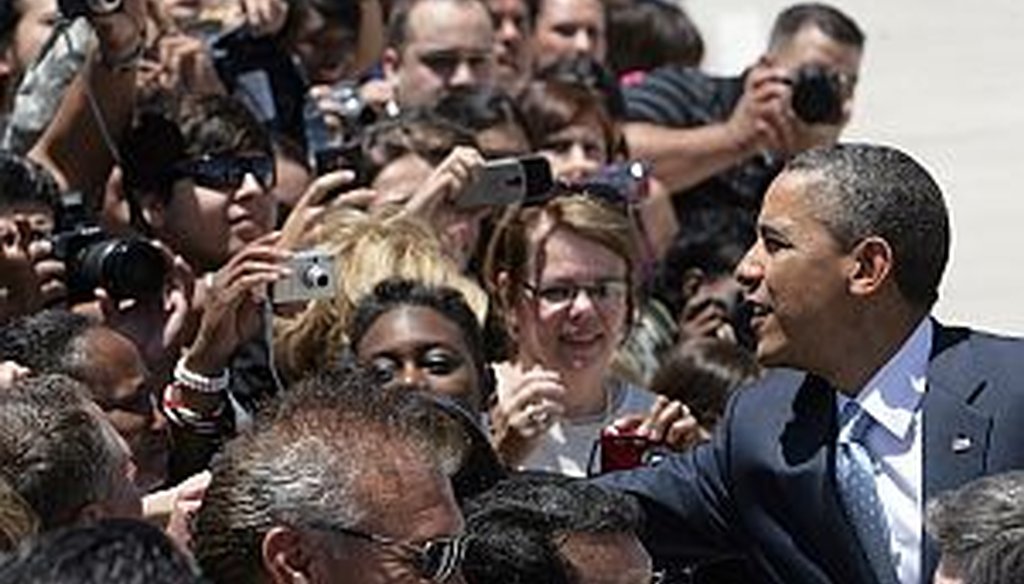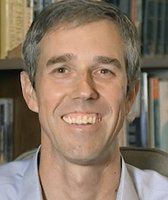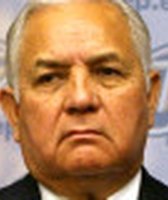Get PolitiFact in your inbox.

President Obama alighted in El Paso in May 2011.
We cited eight national polls in finding unsupported a Democrat’s claim about Republicans and President Barack Obama.
Gilberto Hinojosa, a candidate to chair the Texas Democratic Party, told an Austin group in April 2012: "A large majority of the Republican Party believes that this man is a Muslim and was born in a foreign country, was not born in the United States."
Based on the polls we reviewed, we rated Hinojosa’s claim False.
On Obama’s religion, the biggest percentage of Republicans answering "Muslim" was 46 percent in an August 2010 Time poll. The lowest was 17 percent in a March 2009 Pew Research Center for People & the Press poll. On Obama being born outside the country, the highest result was 43 percent of Republicans in an April 2011 USA Today/Gallup poll. The lowest was 14 percent in an April-May 2011 Washington Post poll.
So, a "large majority" of Republicans did not endorse either of these answers.
Then came a reader’s email pointing out we’d failed to consider a March 2010 poll by Harris Interactive indicating that 57 percent of Republicans -- which would be a large majority any Election Day -- believed Obama to be a Muslim. In the poll, 45 percent of Republicans said he was not born in the United States.
We subsequently considered the poll and concluded that the way it was written puts its results in question.
According to Harris Interactive, the poll was taken of 2,320 adults in early March 2010 from a pool of individuals who had volunteered to take the firm’s online surveys. In other words, this was not a scientifically random survey.
The poll’s Obama question opens: "On another subject, here are some things people have said about President Obama. Please indicate for each whether you believe it is true or false." Respondents were then asked to say true or false to statements starting with Obama "is a socialist" and ending with: "He wants the terrorists to win." Others included: Obama wants to take away guns; is a Muslim; favors one-world government; is a racist; was not born in the United States; is doing many of the things that Hitler did; and, that he may be the Anti-Christ.
At the time, Gary Langer, then polling director for ABC News, criticized the survey as a splendid way not to gather honest opinions of Obama. In a March 24, 2010, blog post, Langer called the opening of the Obama question -- "some people have said" -- a "biasing introductory phrase; it imbues the subsequent statements with an air of credibility – particularly when you don’t note that others say something else...The subsequent statements, for their part, are classically unbalanced – there’s no alternative proposition to consider." That is, respondents were likely to tilt in the direction framed by the question.
Langer’s blog post also says: "Admittedly it’s a challenge to measure these sorts of sentiments. Unless carefully crafted, with balance and an approach that encourages due consideration and probes for meaning, simply asking the question can turn into little more than the old reporter’s trick of piping quotes. It’s a shopworn use of true/false and agree/disagree questions, one long overdue for retirement."
In a March 25, 2010, blog post, Humphrey Taylor, chairman of the Harris Poll, defended the poll, saying that "asking people if statements are true or false is a well accepted methodology." Speaking to the impact of presenting a stack of pejorative statements about Obama, Taylor replied in part: "It is possible, if we had included both positive and negative statements, fewer people would have said the negative statements were true. However, most of the criticisms seem to come from people who didn’t want to believe that the answers were accurate."
We recently telephoned Langer, president of Langer Research Associates, as we looked back at the poll we’d missed. Langer stood by his 2010 critique, which we find persuasive.
In the end, we think the questions about the poll lessen its value. At the least, its results are inconsistent with other reputable polls.
We have no plans to change our rating of Hinojosa’s claim.
Regardless, we appreciate any reader taking the time to nudge us about what we’ve missed. Keeps us where we need to be -- on our toes.
Our Sources
ABC News, blog post, "Polling on Presidential Pejoratives," March 24, 2010
National Journal, "True Or False: This Poll Is Out There," Nov. 11, 2010
Over the Wire, blog post by Humphrey Taylor, chairman of the Harris Poll, "Wingnuts: A Harris Poll That Has Generated A Lot of Attention," March 25, 2010







































